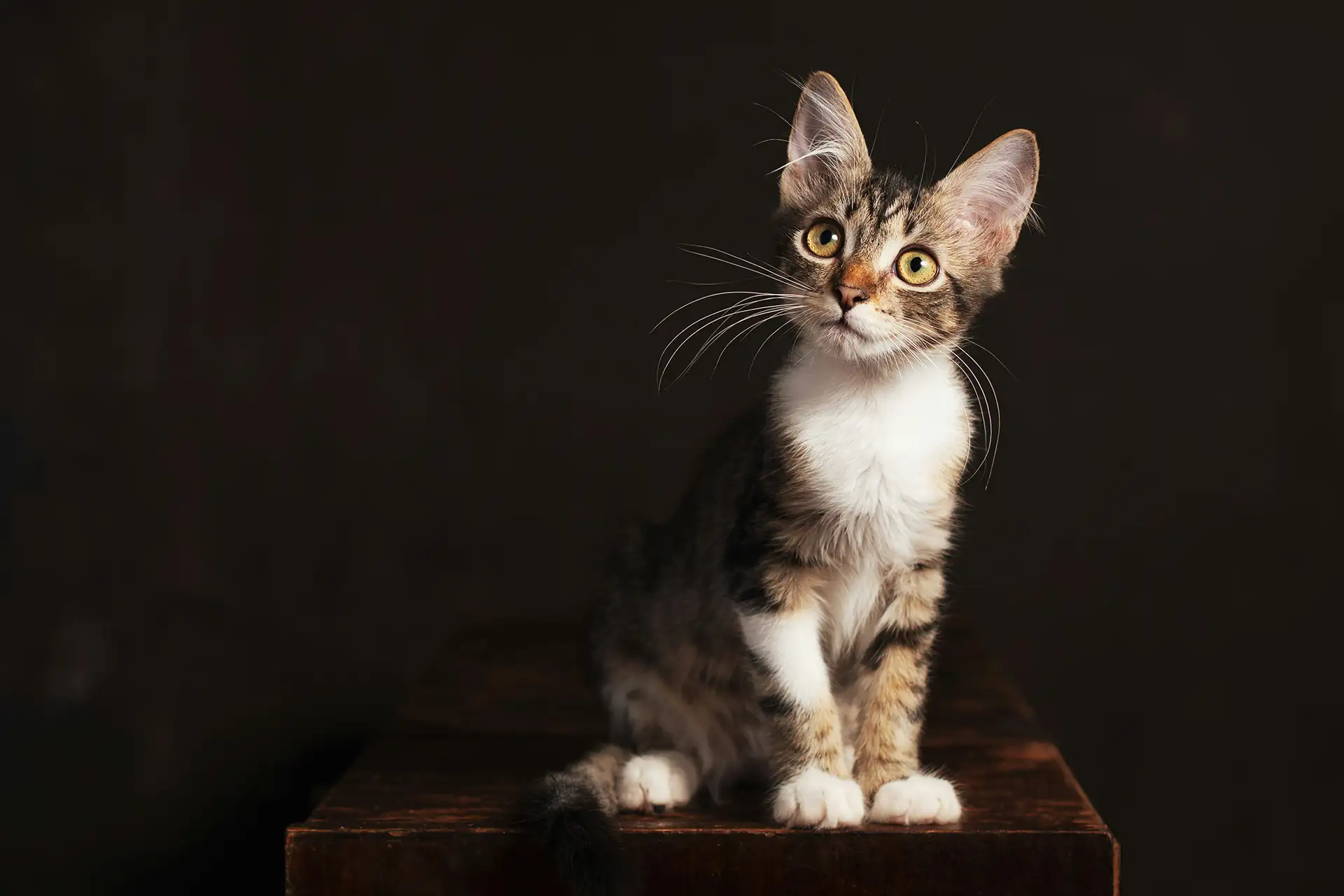Cats have a well-earned reputation for being independent and resilient, but they’re also experts at hiding signs of illness. At All Cats Clinic, our compassionate veterinarians in Fayetteville, AR care for feline patients from across the surrounding Northwest Arkansas area, helping pet parents spot potential health problems before they become serious. The earlier we identify and treat an illness, the better the chances for a full recovery and a long, healthy life for your feline companion.
In this comprehensive guide, we’ll look at the most common cat illnesses, how to recognize the early warning signs, and the steps you can take to help prevent them. By staying informed and proactive, you can give your furry pal the best shot at living a happy, comfortable life.
Why Cats Hide Illness
Your feline friend’s wild ancestors taught them an important survival skill: hide weakness at all costs. In the wild, any sign of illness could make a cat vulnerable to predators. This instinct is still very much alive in our house cats today, which means many pet parents don’t realize something is wrong until an illness is advanced.
Regular checkups at All Cats Clinic are critical because our veterinarians are trained to detect subtle signs of trouble—changes in weight, coat condition, or even minor shifts in behavior—that might otherwise go unnoticed.
Common Illnesses in Cats
1. Upper Respiratory Infections (URIs)
These are among the most frequent health problems in cats, particularly in shelters, multi-cat homes, and outdoor cats. URIs are usually caused by viruses like feline herpesvirus or calicivirus, though bacteria can also be involved.
Signs to watch for:
-
Sneezing
-
Coughing
-
Runny nose or eyes
-
Loss of appetite
Prevention: Vaccination (FVRCP) is the best defense. Minimizing stress and avoiding exposure to sick cats also helps.
2. Feline Lower Urinary Tract Disease (FLUTD)
FLUTD is a term for several conditions affecting the bladder and urethra. It’s especially dangerous in male cats, who can suffer from life-threatening urinary blockages.
Signs to watch for:
-
Straining to urinate
-
Frequent, small trips to the litter box
-
Blood in urine
-
Vocalizing while in the litter box
Prevention: Encourage water intake with fountains, provide a balanced diet, and minimize stress.
3. Feline Leukemia Virus (FeLV)
FeLV is a contagious virus that weakens the immune system and can lead to anemia and cancer. It spreads through saliva, blood, and, less commonly, shared litter boxes or food bowls.
Signs to watch for:
-
Persistent fever
-
Poor coat condition
-
Weight loss
-
Recurrent infections
Prevention: Vaccination and keeping your cat indoors to limit exposure to infected cats.
4. Dental Disease
Gum disease is one of the most common yet overlooked issues in cats. Plaque buildup can progress to gingivitis and periodontal disease, which may cause pain, tooth loss, and systemic health problems.
Signs to watch for:
-
Bad breath
-
Drooling
-
Difficulty eating
-
Pawing at the mouth
Prevention: Regular dental exams, professional cleanings, and home dental care like brushing or dental wipes.
5. Diabetes Mellitus
Diabetes occurs when the body cannot properly produce or use insulin, leading to high blood sugar levels. Obesity is a major risk factor.
Signs to watch for:
-
Increased thirst
-
Increased urination
-
Weight loss despite good appetite
-
Lethargy
Prevention: Keep your cat at a healthy weight and provide a balanced diet.
6. Kidney Disease
Chronic kidney disease (CKD) is more common in older cats but can develop at any age. It’s progressive but manageable if caught early.
Signs to watch for:
-
Increased thirst and urination
-
Weight loss
-
Poor coat quality
-
Vomiting
Prevention: Annual or semi-annual bloodwork for older cats, along with a diet designed to support kidney health.
7. Hyperthyroidism
This condition, caused by an overactive thyroid gland, is common in cats over 10 years old.
Signs to watch for:
-
Weight loss despite increased appetite
-
Restlessness or hyperactivity
-
Increased thirst and urination
Prevention: There’s no guaranteed prevention, but early detection through routine bloodwork is key.
Preventing Illness in Cats
The best defense against many of these illnesses is proactive veterinary care. At All Cats Clinic, we recommend:
-
Annual Wellness Exams for healthy adult cats, twice-yearly for seniors.
-
Vaccinations to prevent contagious diseases like rabies, FeLV, and FVRCP illnesses.
-
Parasite Prevention year-round for fleas, ticks, and intestinal parasites.
-
Nutrition and Weight Management to avoid obesity-related diseases.
-
Stress Reduction through environmental enrichment like scratching posts, hiding spots, and interactive toys.
How to Spot Trouble Early
Even the most attentive cat owner can miss subtle changes in behavior. Keep a close eye on your cat’s:
-
Appetite and water intake
-
Litter box habits
-
Energy level
-
Grooming behavior
-
Social interactions
If you notice sudden changes, such as avoiding food, hiding more than usual, or vocalizing in a distressed manner, it’s time to schedule an appointment with your veterinarian.
The Blue Cross has information on signs of pain in cats on their website here. PetMD also has some great info about signs of pain in cats here.
FAQs About Common Cat Illnesses
How often should my cat see the vet?
At least once a year for adult cats, and twice a year for seniors or cats with chronic conditions.
Can indoor cats get sick?
Yes. Even indoor cats can catch airborne viruses, develop dental problems, or suffer from chronic conditions like diabetes.
When should I consider emergency care?
If your cat is struggling to breathe, unable to urinate, has severe lethargy, or is experiencing seizures, seek veterinary help immediately.
We also did a post about signs of sickness in cats, which you can find here.
Are vaccines really necessary for indoor cats?
Absolutely. Indoor cats can still be exposed to pathogens carried into the home on clothing, shoes, or by other pets.
Visit Our Fayetteville, AR Veterinary Clinic for Cat Health Care
Understanding the signs of illness and acting quickly can save your cat’s life. If you’re searching for a vet near me in Fayetteville, AR, All Cats Clinic is here to help with preventive care, diagnostics, and compassionate treatment. Protect your feline friend’s health by scheduling a wellness exam today.
Visit our Service page here for more insight about our feline-only veterinary clinic. This blog is meant to be informational only. Always consult with your veterinarian for the right medical advice, diagnosis, or treatment plan for your pet and follow their advice.





!Social Media Icons